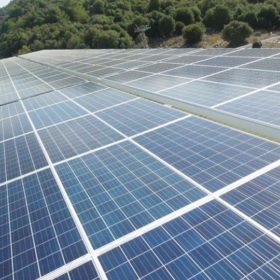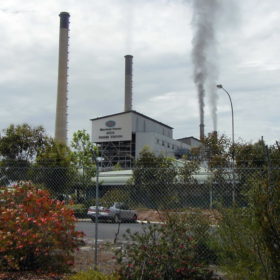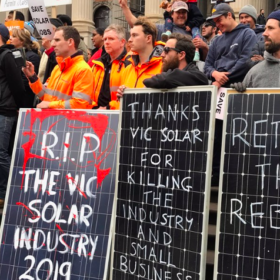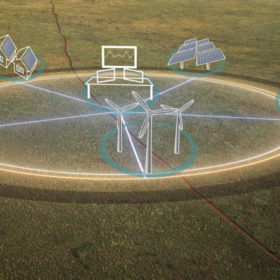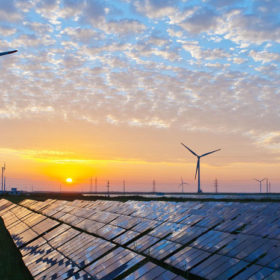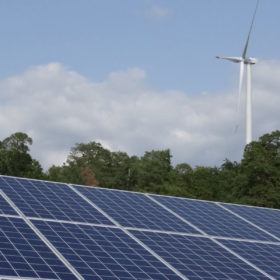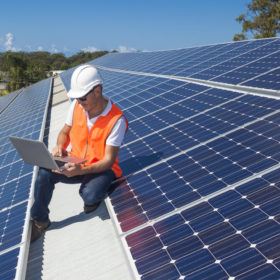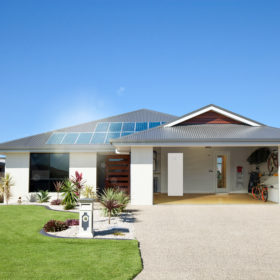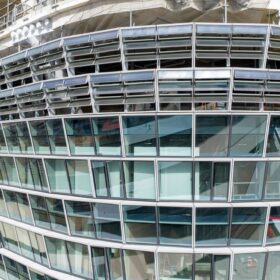Risen Australia achieves 120 MW of rooftop panel sales in a year
Chinese PV module maker Risen Energy has announced it has achieved the highest jump in solar module sales in the Australian market in a one-year period.
WA coal generator undercut by rooftop solar boom
Western Australia’s government has announced two units at Synergy’s Muja Power Station will be retired from October 2022. The state government said the coal-fired units were only being used about 35% of the time thanks largely to rooftop solar reducing demand on the grid.
Victorian protests over solar rebate woes to continue this week
The Smart Energy Council has announced plans for a second rally to warn against the current Solar Homes scheme’s damaging effect on Victoria’s solar industry. This time, the protest will target Premier Daniel Andrews’ office.
AEMO opens registrations for participation in VPP demonstration program
The program will test the potential of distributed energy resources, such as rooftop solar systems, battery storage and controllable load devices, aggregated into virtual power plants (VPPs), to provide scalable energy and network services traditionally performed by large-scale, conventional electricity generators. With registration open, the Australian Energy Market Operator wants VPPs to register to accelerate the shared learning on how to safely and efficiently integrate, operate and regulate these emerging technologies into the National Electricity Market.
Solar drives renewable energy share up above 30% in winter
Even though it is winter, solar capacity is now sufficiently large that it drove renewable energy’s share of the electricity market up above 30% in the middle of the day for 20 out of 30 days of June, finds Green Energy Markets.
Australia’s green bank to sharpen focus on storage following record investment in renewables
After it deployed a record $1.3 billion into the clean energy sector in a 12-month period, the Clean Energy Finance Corporation said it will sharpen its focus on energy storage and other technologies to support the stability of the national grid.
Sunport MWT solar technology bursts onto the Australian market
Metal wrap-through technology combined with PERC confers multiple benefits on Sunport Power’s new solar modules. Add the involvement of UNSW’s Professor Martin Green in the product development, Sunport’s 1.4 GW production capacity and a 30-year performmance warranty by insurer Lloyds… Two Australian wholesalers have started shipping.
Batteries well-suited to play valuable role in grid management in New Zealand’s energy transition
A report published by New Zealand’s state-owned transmission grid operator Transpower finds the widespread uptake of distributed battery storage could play an important role in supporting the power system as rooftop PV and electric vehicles are increasingly adopted.
More calls for review of Victoria’s Solar Homes Program
Following similar calls from other industry bodies, the Clean Energy Council has urged the Victorian government to review its landmark Solar Homes Program and warned about the serious effects its dynamics has on the industry.
Smart meter time of use pricing to drive up household energy costs without the help of solar and batteries
New research released this week by The Australia Institute shows that ‘time of use pricing’ (ToU) facilitated by smart meters is likely to drive up household energy costs by $429 a year on top of already high prices. Analysis of national electricity market data suggests that demand for electricity in Australia is very inelastic, which makes ToU more likely to increase the profits of electricity companies than to assist consumers. Households with solar PV and batteries, however, are best suited to cope with this type of pricing.
